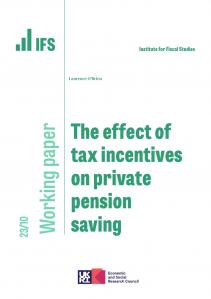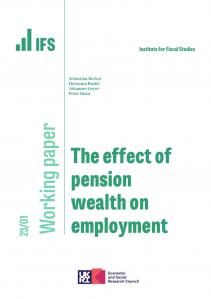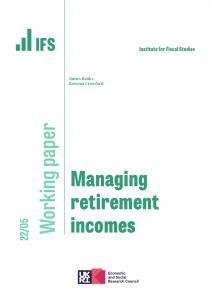How much to put aside for retirement is one of those issues that many working age people do not like to think about very much.
With the last seven years dominated by Brexit, dealing with a pandemic and recovery from it, supporting households and businesses with energy bills and the cost of living crisis, it is also fair to say retirement saving has not been front and centre in the mind of policymakers either.
While there was a lot of policy action on pensions around the turn of the century and also between 2010 and 2016, the last time there was a major review of our retirement saving system was back in 2005, when Lord Turner’s Pensions Commission reported.
To a great extent many of the pillars of our system have survived from those proposals: automatic enrolment of most employees into workplace pensions; rises in the state pension age; and a more generously indexed flat-rate state pension.
But the world has changed a lot in the almost two decades since that review: a financial crisis, a pandemic, record low interest rates and falling investment returns; growth in self-employment; falling home ownership; stagnating earnings; and stalling life expectancy — none of which were anticipated in the mid-2000s. A thorough review of the UK pensions system is needed — and now.
Why now? The problem with pensions and policies affecting them is that the world moves slowly. New policies that affect the pension saving of a 21-year-old in 2030 will still affect the living standard of retirees at the turn of the next century. Modest increases in saving behaviour among younger people will also do more to boost their retirement incomes than for those in their fifties.
Be ahead of the game
This all means that you need to be ahead of the game. You need to see the problems coming down the track and try to address them sooner rather than later. You cannot tell a 65-year-old to go back in time and save more for their retirement when they were 45.
Given this need for clear and careful thinking, we are delighted to be advising the Institute for Fiscal Studies and the Abrdn Financial Fairness Trust on their new “Pensions Review”, which has just been launched. The independent, apolitical IFS is an obvious choice to take on this work. Importantly, its broad expertise – not only in pensions, but on public finances, tax, welfare and other areas of public policy – needs to be drawn upon to think about the multiple challenges the retirement saving system faces.











